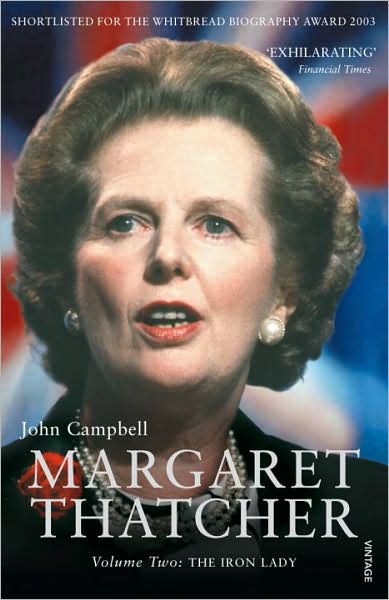
John Campbell continues his balanced approach to Margaret Thatcher’s life in the second volume of her biography, condeming and praising her policies, accusing and defending her character, in a way that is subjective, but never partisan.
Thatcher was a conviction politician, and it’s her convictions that, to me at least, come across as her best quality: Her belief in free markets and individual freedom, her vision of an enterprising culture, where reliance on government services is an exception, not the norm.
From these convictions, she achieved at least two major practical achievements: Taming the unions, and privatizing major industries. The British unions of thirty years ago needed taming. They were anti-democratic blackmail operations, run by fanatics. And the state-owned industries of the time needed selling.
Campbell does a good job of capturing Thatcher’s downfall. Her stubborn and arrogant style served her well in the early years, but it eventually made her a bad cabinet leader, who bullied her colleagues, and ended up isolated and friendless.
But neither her Tory nor her Labor successors reversed her policies. Thatcher’s electoral success shifted the centre of the political axis, forcing Labor to abandon socialism. This has been a global trend, culminating in the fall of Communism, and if Thatcher does not deserve the full credit, at least she was one of the most visible champions of it.
As a politician she had flaws and strengths, successes and failures. But as a symbol, a symbol of a principled approach to personal freedom, I believe she is mostly to be praised.